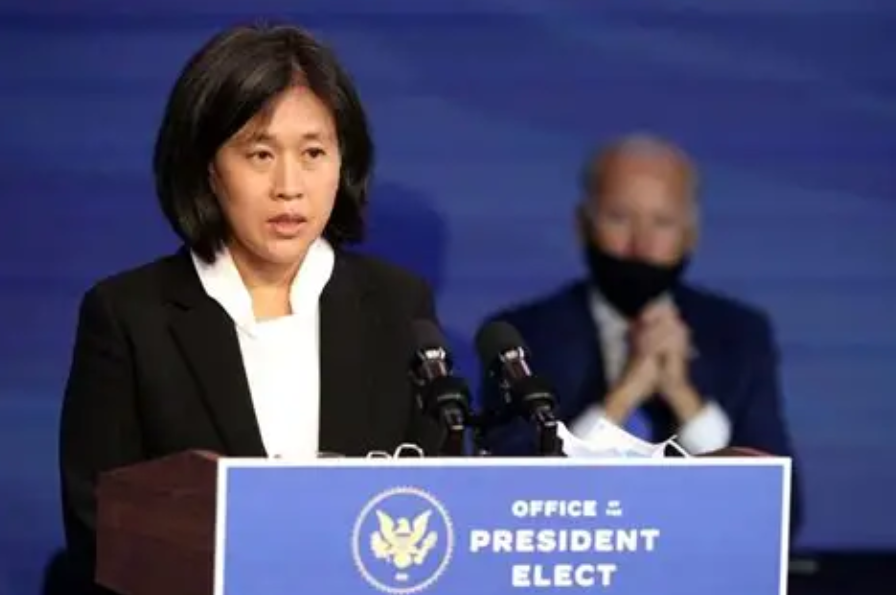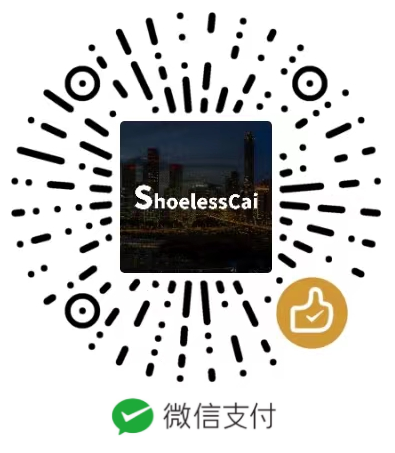
彭博推送 | 继续增加加拿大乳制品进口关税。由 Jingyi 翻译。
原文
特朗普关税释放了一种全球混乱,总统很开心,商业人士并非如此。最近笔者面试了 Katherine Tai,拜登任期的美国商务谈判,她告诉我说,她检查了所有合作者、竞争对手相关的交易品类,从大豆到半导体,她知道该如何采取行动,达到双方长久的合作关系。Tai 警告,大量使用美国经济杠杆的事件数量可能急剧下降,因这些强迫某些人们不喜欢不想涉及的交易发生。
“当人们回顾自己如何同意协议的时候,感觉都是很糟糕的。因他们认为他们在谈判桌上没有被尊重。”Tai 说到,“有这样的趋势,人们试图摆脱协议”。
她强调了一些并不闪亮却有些造作的案例,例如,出口到加拿大的乳制品。美国牧场主长期以来,都希望更容易地出口到加拿大,同时,加拿大牧场主长期以来都反对这样的诉求。特朗普首次任总统的时候,强迫加拿大政府接受对美国更加友好的条款。加拿大也同意了,至少书面上同意了。事实上,加拿大从未完全执行约定,这是美国一直诟病的,尽管美国反复试图能实施约定。(既然特朗普回到了白宫,他有一次征收更多的关税在加拿大乳制品上)就像 Tai 所说的,“证据表明,人们从未将加拿大关税这件事情当真”。
最近一些类似的事件发生,规模更大。一些国家立刻抱团 开展实验性的交易,由于特朗普政府顽强地征收紧急关税,这些国家找到经济上的补偿,通过在自己的贸易协定中形成连接,使其收入形同没有关税,但是美国并没有这么干。
彭博报导,“一些美国经济同盟会重新思考长期以来的依赖关系,依赖的是与世界最大经济体的低贸易壁垒”欧盟在一系列和美国谈判中表示,“事先已经开展了已经存在的双边对话,也衡量了新方法,也考虑了基于规则的全球贸易系统。”
专有名词“基于规则的 rule-based”,直接针对特朗普的,因其习惯于单边改变现有贸易的条款,或者直接宣称他不遵守。他试图掩盖交易,这些都是和亚洲国际有关的,包括韩国、日本,现在这些合作也终止的,因美国总统宣称,美国可能附加条款,对汽车品类分开征税。
imminent 迫在眉睫的
tack on 钉上,附加
全球的国家开始找寻新市场,因很多商品都受制于美国的高关税。欧盟同时和加拿大、日本展开对话,该区域还开展了和印度的国与国对话。欧盟还和印尼达成实验性协议。巴西政府宣称,会主动找寻新的客户。这个月,印度、巴西都同意了在其相互贸易之间增加 70%。当然,各国对于美国有所不满,中国可以因此加强和其他国家的关系。
“我支持欧盟委员会,关于支持全球伙伴关系的工作,欧盟与其他国家的关系,因美国高关税都受到影响。”经济方面总理 Wolfgang Hattmannsdorfer 说到。本周一,他说:“我们携手的话,是可以增加对美国的压力的”。
“显然,从任何世界贸易角度来说,美国是没有替代的。美国是全球最大进口国,几乎没有贸易伙伴会希望不和美国交互。因此,很多国家领导人也接受了他们不满意的条款,保证其对美国的货物进口。然而,特朗普特朗普却是在测试上限,这些国家能够让到什么程度,然后他们才会在商言商地和其他国家交互。”
译文
As Donald Trump’s tariff threats unleash the kind of global turmoil the president clearly
enjoys and US trading partners clearly don’t, I’ve been thinking about something
Katherine Tai told me in a recent interview. Tai was the chief US trade negotiator when Joe
Biden was president. She oversaw dealmaking with allies and adversaries on everything from
soybeans to semiconductors, and she knows what it takes to reach a durable agreement both
sides can live with. Tai warned there’s a significant downside to using America’s massive
economic leverage to force countries into deals they dislike and consider unfair.
“When they don’t feel good about how they got to yes, because they didn’t feel like they
had been respected at the table,” Tai said, “the tendency is to try to get out from under
the agreement.”
She illustrated the point with the unglamorous but contentious example of dairy exports to
Canada. US dairy farmers have long wanted easier access to Canada’s market, and Canadian
dairy farmers have long fought against it. When Trump was president the first time, he
pressed Canada’s government to accept terms that were more favorable to the US. They
agreed, at least on paper. In reality, Canada never fully lived up to the deal, the US has
argued, despite repeated actions to try to enforce it. (Since returning to the White House,
Trump has once again threatened steeper tariffs on Canadian dairy products.) As Tai put it,
“The evidence suggests they never regarded that as a true commitment.”
Something similar appears to be happening now, on a larger scale. While countries rush to
patch together tentative deals with the Trump administration to ward off imminent tariffs,
they’re looking to offset the economic pain by forming ties among themselves that would
feature lower or no tariffs—and that don’t include the US.
Bloomberg reports that “some of America’s economic allies are rethinking their long-
standing dependence on low trade barriers to the world’s biggest economy.” Amid
negotiations with the US, the European Union is “also forging ahead with existing
bilateral talks and weighing new ways that align with the rules-based global trading
system.”
That dry sounding term, “rules-based,” is aimed directly at Trump’s habit of
unilaterally changing the terms of existing trade agreements or announcing he’ll simply no
longer abide by them. His attempts to seal deals with some Asian nations, including South
Korea and Japan, have been hung up in part because the US president has said he may still
tack on separate tariffs for cars or other products in the future.
Nations around the world are starting to look for new markets for goods that are subject to
Trump’s high tariffs. The EU is talking to Canada as well as to Japan, and the bloc is
also engaged in ongoing talks with India. The EU also reached a tentative economic
agreement with Indonesia. Brazil’s government has said it’s actively looking for new
customers for its products. This month, India and Brazil agreed to a 70% increase in mutual
trade. China, of course, is eager to take advantage of discontent with Trump to strengthen
its own ties with other nations.
“I support the [European] Commission in its efforts to form global partnerships, alliances
with other countries that are threatened by US tariffs,” Wolfgang Hattmannsdorfer, Austria
’s economy minister, said on Monday. “Together we can raise the pressure exerted on the
US.”
There is, of course, no replacing the US with any combination of novel trade deals. It’s
the world’s largest market for imported goods, and few trading partners would toy with
losing access to it. As a result, leaders may agree to terms they don’t like to keep goods
flowing to the US. Yet Trump is testing the limits of how hard they’re willing to be
pushed before they decide to take as much business as they can elsewhere.
原文链接
长按/扫码,有您的支持,我们会更加努力!


|
